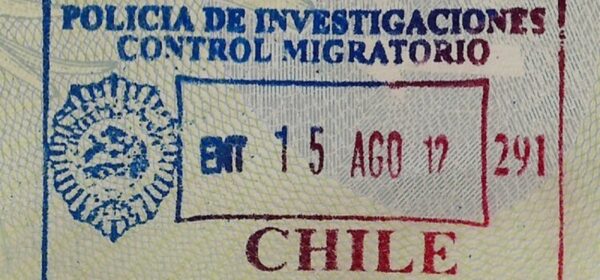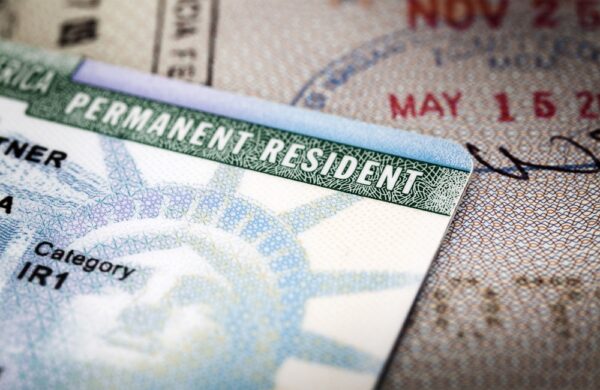Poland Permanent Residence offers individuals the opportunity to live, work, and enjoy long-term stability in one of Europe's most powerful and culturally rich countries. This legal status seems to allow non-EU nationals to stay in Poland for as long as they wish and enjoy many of the rights that are just issued to Polish citizens, like being a member of the health insurance system, receiving education, and being part of the workforce. In this regard, it is important to fulfill certain conditions such as minimum time of legal stay, economic means, as well as knowledge of the Polish language to obtain permanent residence in Poland. Let’s explore the eligibility, document requirements, and application process for Polish permanent residency to ensure an easier transition into a long-term resident.
Poland Permanent Residence Criteria
You can live in Poland for an indefinite period if you're granted permanent residency. Having a permanent resident permit, often known as a permanent residence card, permits you to travel to other Schengen nations. With this permit, you are able to work in Poland without obtaining any other paperwork. However, you are not entitled to work outside of Poland with a permanent residence permit issued in Poland. To get permanent residency in Poland, you must satisfy one of the following requirements:
- You have been a long-term resident of Poland for at least five years, either on a work, student, or family reunification visa.
- You’ve been married for a minimum of three years to a Polish citizen.
- You're from Poland and want to settle there permanently.
- You are the child (or foreign child) of someone with a permanent residence permit.
- Your parents are Polish citizens.
- You’ve been granted asylum in Poland.
- You have lived in Poland for the past ten years with a tolerated stay permit, and you are unable to return home because of fear of persecution or unfair treatment.
- You are a human trafficking victim who has lived in Poland for at least a year and has cooperated with law enforcement.
Documents Required to Apply for Poland Permanent Residency
To apply for Poland permanent residency, you must have the following valid documents:
- Poland permanent residence permit form
- Original and copy of passport
- Four recent photographs
- Proof of paid stamp duty
- Proof of sufficient income
- Health insurance
- Proof of reason supporting the application for a permanent residency permit.
You may need to submit extra valid travel documents for your permanent residence permit, depending on your foreign national status. The additional documents include:
- Documents attesting to the origin of your parents, grandparents, or great-grandparents.
- Documents proving you are related to a citizen of Poland.
- A copy of your Poles card.
- A valid passport
- Copy of marriage certificate.
- Proof of paid taxes.
- Proof of stamp duty.
- Contract of employment.
- Copy of child’s birth certificate.
- Polish spouse identification card
- Every document needs to be properly legalized (like an apostille stamp) and translated into either Polish or English.
How to Apply for a Polish Permanent Residence Permit
Find a Voivodeship Office: Your permanent stay must be authorized by a suitable regional office, such as the Foreign Affairs department ( voivodeship office.)
Gather Documents: You need to collect the necessary paperwork attesting to your identification, Polish ancestry, marriage license, etc.
Submit Application: Once all relevant documents have been collected, translated, and legalized, send your application and supporting documentation to the closest voivodeship office.
Application Fee: You must pay PLN 640 ($158) for the application cost (stamp duty payment). If your application is approved, you will have to pay an extra 50 PLN to obtain a residency card, just like you would for a temporary residence permit. Otherwise, you can ask for a refund.
How Long Does It Take to Process a Polish Permanent Residency Permit
The processing time for a residency permit is around one month. However, in actuality, the processing period will be significantly longer (between six and twelve months). After getting a positive decision, you can now collect your permit.
Difference Between a Temporary Residence Permit and a Permanent Residence Permit
You must apply for a temporary visa from your country of origin when you are traveling to Poland for the first time. You can, however, apply for permanent residency after a certain period of time spent in the country. A temporary residence card does not allow you to remain in the country of destination for more than the time allotted. Therefore, if you are traveling to Poland on a work, business, or study visa, you must apply for a temporary residence permit.
You must have an employment contract to travel for work purposes. Additionally, it has a three-year period of validity with the chance for extension. But you might have to pay 94 euros for it. Apart from that, you can live and work in Poland and other neighboring countries if you have a temporary permit. When applying, you must also include an employment letter from your Polish employer or an admission letter from a college or university.
What is a Pole Card?
Every nation has several ways for its citizens to show their nationality. Poland has one as well, called a Pole's card. A Pole's card is physical proof that you are a resident of Poland but not a Polish citizen. Being a citizen is not the same as being a resident. So, after five years of being in the country with a permanent residence permit, you can request citizenship.
Once you have been granted permanent residence status in Poland, you can get your card. Additionally, this card is valid for ten years. It begins on the day you receive your authorization to live there permanently. As a result, be sure to keep it safe, along with the other documents required for the application procedure.
If your card is about to expire, you must speak with the agent three months in advance to request an extension. Therefore, it will remain valid for another ten years. Furthermore, if your card was misplaced or damaged during any situation, you can reapply at the Voivodeship. Surprisingly, there are no fees or costs associated with it.
Eligibility
There are numerous ways to obtain your Pole's card. Having a permanent residency permit is not the only prerequisite for obtaining one. To be eligible :
- You must provide documentation that your forefathers were not removed from the country, whether legally or illegally.
- Furthermore, you can obtain a Pole's card by announcing verbally or in writing that you will permanently reside in Poland in front of the consulate or Voivodeship.
- The last option is to show proof that your grandparents, parents, or great-grandparents were Polish.
Benefits of Obtaining Poland Permanent Residency
1. Pathway to Citizenship
You can seek Polish citizenship after three years of holding a permanent residence card. So you see, Poland immigration pays, after all. The Polish passport allows entry into 173 countries, including the EU, Turkey, Singapore, Japan, and others, without a visa or with a visa upon arrival, according to the Nomad Passport Index. You also get all the benefits of EU citizenship when you become a Polish citizen. This includes visa-free travel. Any EU member state is open to you for entry, stay, study, and employment. Additionally, you are eligible for the universal healthcare and education system provided by the EU.
2. Rich Culture
Poland has a rich and long history. Poland has done a fantastic job of healing as a country, as shown by its steadily improving economy, architecture, standard of living, etc.One of the most stunning and culturally rich cities in Europe is Warsaw, the capital and largest city of Poland. The country isn't very diverse, with almost 95% of the people having Polish origin. Foreigners are still welcome there, though, and are given the opportunity to fit in with Polish culture.
3. Business Operations
Poland serves as the main hub for doing business in the EU and Schengen region due to its strategic location in Europe. You can get your source of income from this. One of the ways to establish residency in Poland is to form an organization. The business must be operating in order to be eligible for a business residence permit in Poland.
Additionally, you must show that the business boosts the Polish economy by facilitating more investment, technology transfer, the introduction of advantageous innovations, and the creation of jobs. Your business must also have at least two Polish employees or generate at least PLN 54,200 in revenue annually.
Other benefits of Poland PR include:
1. Dealing with legal concerns can take a lot of time and drain your energy. But with this permit, all of your crucial tasks will be handled by professionals.
2. Students and those who wish to pursue higher education can apply for scholarships and free education in Poland.
3. You can conduct any lawful economic activity inside Poland's borders. Additionally, this could involve managing your business unit.
4. There is a thirty-seven percent discount if you take the train across Poland.
5. If you have a permanent residency permit, you have nothing to worry about. It will allow you to sponsor your entire family's relocation to Poland.
6. Poland has a lot to offer immigrants. For example, you can go to the museums for free. This is a festival for those who like to travel or discover other locations.
7. Finally, the Polish State Budget allows you to apply for several funds designated for the nation's citizens or residents.
Conclusion
Obtaining a Poland permanent residence offers a gateway to a stable and prosperous life in the heart of Europe. With its rich culture, strong economy, and welcoming community, Poland provides a unique opportunity for individuals to settle, work, and thrive, making it an attractive destination for those seeking a new home.
















